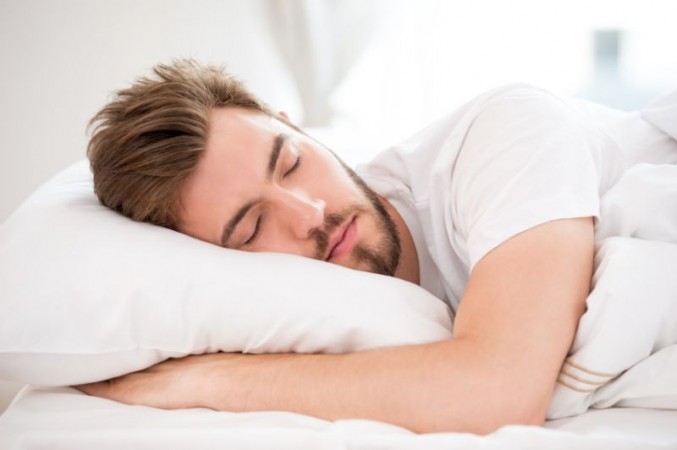
NEW YORK: According to a new research, those who have sleep apnea and get less deep sleep may be more likely to have brain biomarkers that have been associated with an increased risk of stroke, Alzheimer's disease, and cognitive decline. The Reserach were published in the medical journal Neurology.
The study does not, however, establish that the alterations in the brain result from these sleep disorders or vice versa. Only an association is displayed.
The Mayo Clinic researchers discovered that there was an increase in the quantity of white matter hyperintensities, a biomarker that can be seen as minute lesions on brain scans, for every 10-point fall in the proportion of slow-wave sleep. This effect is comparable to growing older by 2.3 years.
Similar to the effects of growing older by three years, the same drop was also linked to decreased axonal integrity, which creates the nerve fibres that connect nerve cells.
White matter hyperintensities were more prevalent in those with severe sleep apnoea than in those with mild or moderate sleep apnoea. Additionally, their brain's axonal integrity was compromised.
The researchers took into account factors including age, sex, and diseases like high blood pressure and high cholesterol that may increase the likelihood of developing brain abnormalities.
Diego Z. Carvalho, a member of the American Academy of Neurology and a researcher at the Mayo Clinic in Minnesota, indicated that these biomarkers are sensitive indicators of early cerebrovascular illness.
"Since there is no cure for these changes in the brain, we need to find ways to stop them from happening or getting worse. Finding that severe sleep apnoea and a decrease in slow-wave sleep are associated with these biomarkers is important." 140 participants with obstructive sleep apnea, with an average age of 73, participated in the study. They underwent a brain scan as well as an overnight sleep lab experiment.
At the beginning of the trial and at the conclusion, none of the subjects reported memory problems or dementia. A total of 34% suffered from mild, 32% from moderate, and 34% from severe sleep apnea.
More investigation is required to ascertain whether sleep problems influence these brain indicators or the other way around, Carvalho said. We also need to investigate if methods to treat sleep apnea or enhance sleep quality can alter the course of these biomarkers.
Dengue Prevention Day 2023: How to Protect yourself from Dengue
Study finds Heart inflammation post Covid vaccination not caused by antibodies